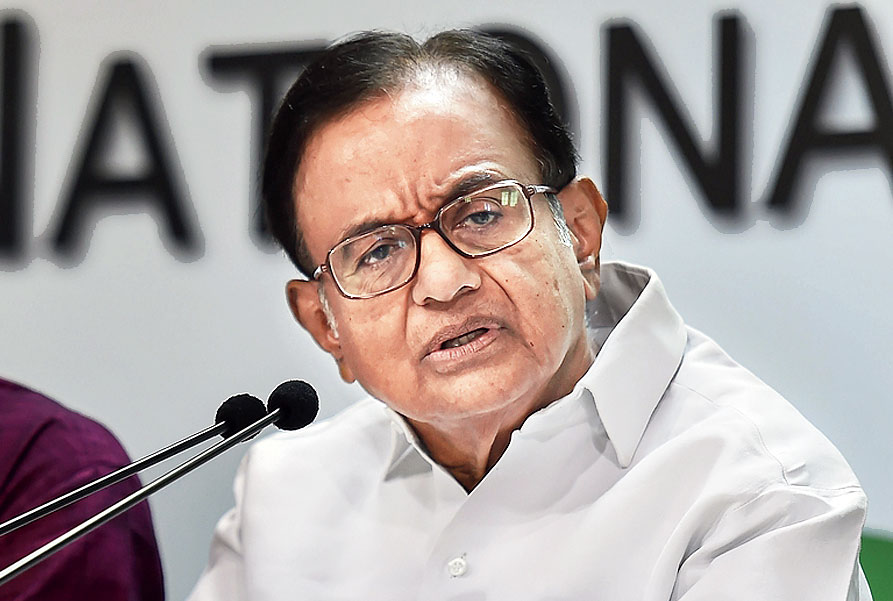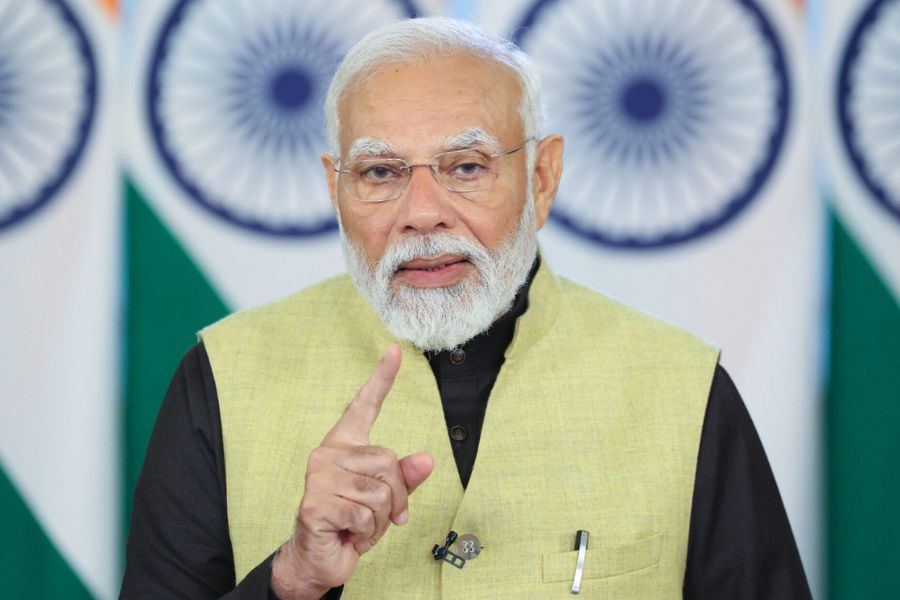Congress veteran P. Chidambaram, one of the most experienced ministers who had held portfolios like finance and home over the past three decades, has been a vocal advocate of immediate total lockdown in major cities and towns to check the spread of the coronavirus in India.
He believes the Narendra Modi government wasted precious time in taking decisive steps, for which the country may have to pay a heavy price.
Excerpts from an exclusive interview with The Telegraph follow:
Q: Reports from China indicated a coronavirus outbreak in December-end. By January, the world knew a major crisis was looming. What should an alert and competent government have done? What was the ideal time to get cracking?
A: We can be wiser in hindsight, but that would not be fair. The time to have convened a conference of chief ministers, experts, doctors, epidemiologists, etc. was March 2 when the first cases tested positive. Decisive steps should have followed.
Q: Many countries, including the US, Italy and Spain, failed to react on time. Was it lack of understanding of the gravity of the situation or an attitudinal problem towards health issues?
A: I think it was due to a lack of understanding of the nature of the virus and how fast and far the virus can spread. Besides, the structure of health systems differed from country to country. Some governments were downright complacent.
Q: Rahul Gandhi raised the alarm on February 12 and since then constantly tried to alert the government to the lurking peril. He was ignored initially and even in mid-March, he was condemned for fear-mongering. Did the Modi government take things lightly?
A: If you accord quackery and mythology the same status as science and technology, the result will be inaction. The Prime Minister should have sought the best expert advice that was available and taken decisive measures immediately. Anyway, that is behind us. The question is, as we speak today, is the government fully alive to the scale of the problem and the magnitude of the tasks that have to be performed?
Q: You have been repeatedly asking for a total lockdown. Finally, the governments woke up. But millions of people have returned to the hinterland in the past three to four days. Have we wasted a precious couple of weeks? Can this lead to disastrous consequences?
A: I regret to say that we have lost valuable time. Even today, there is no nationwide lockdown. Some chief ministers have acted boldly but only in respect of parts of their state. Read Dr Devi Shetty today (a newspaper article). The time for a total lockdown is NOW. I was afraid that workers will migrate from cities to their villages and that is what has happened in the past few days. I hope we don’t pay too high a price on that account.
Q: What did you feel seeing the 5pm clanging of plates on Sunday?
A: There was nothing wrong in a 14-hour Janata Curfew or a 5pm thanksgiving. Symbolic actions play a key role in spreading awareness. It is a part of the “communication” strategy. But we should have followed Sunday’s symbolic step with a declaration of an immediate nationwide lockdown and enforced it strictly in all towns and cities. We should suspend nearly all public and private transport except for essential services and emergencies.
Q: The coronavirus has proved how deeply the world is interconnected and that our well-being depends on collective efforts and mutual cooperation. How do you see this tragedy affecting diplomacy and global businesses?
A: The cat can jump either way. The experience of each country with Covid-19 can make the government of that country more open and collaborative or it can make them more protectionist and fearful of immigration, internal migration, tourism, international conferences and sports events, etc. We must wait and see.
Diplomats are very resilient. Businessmen can also be quite resilient, provided they have the support of the financial system of the country. Remember World War II, West Germany, (Konrad) Adenauer (the first Chancellor of the Federal Republic of Germany) and (Ludwig) Erhard (the second Chancellor known for the economic recovery initiative), and Wirtschaftswunder (the rapid reconstruction and development of the economies of West Germany and Austria after World War II); and remember the Marshall Plan and Japan.
Q: The economy was already in ruins. How hard will this crisis hit businesses and investments in India? How do you see the Indian economy going over the next five years or a decade?
A: Let’s assume that the slide of the last seven quarters has stopped at about 4.7 to 5 per cent. The Covid-19 impact could be up to 2 per cent in India, the same as the predicted impact on the growth rate of the world economy in 2020.
It will require astute economic management to, first, deal with the economic consequences of the crisis; and, second, to put the economy on the 5-6 per cent growth path and further on a higher growth path. It will take two to three years.
Q: Bill Gates predicted in 2015 that the next global threat could be a virus and questioned the obsessive emphasis on the ill-effects of nuclear war. Is it a global failure that the leadership across the world didn’t prepare for such a crisis? The focus wasn’t on health infrastructure at all?
A: It is indeed a global failure, but some countries neglected healthcare (especially the public health system) more than others. On the one hand are the North European and Scandinavian countries, Japan and South Korea. On the other are the United States, the United Kingdom, France, Italy, Spain, etc. The developing countries belong to a different set and their constraints are political, educational and financial.
Q: But in India, we are stuck in the politics of statues, memorials and religiosity. New crises are being invented in Kashmir and the citizenship issue. Is that the way forward to deal with the challenges of the modern world?
A: I do not wish to comment on these issues at a time of a national crisis.











